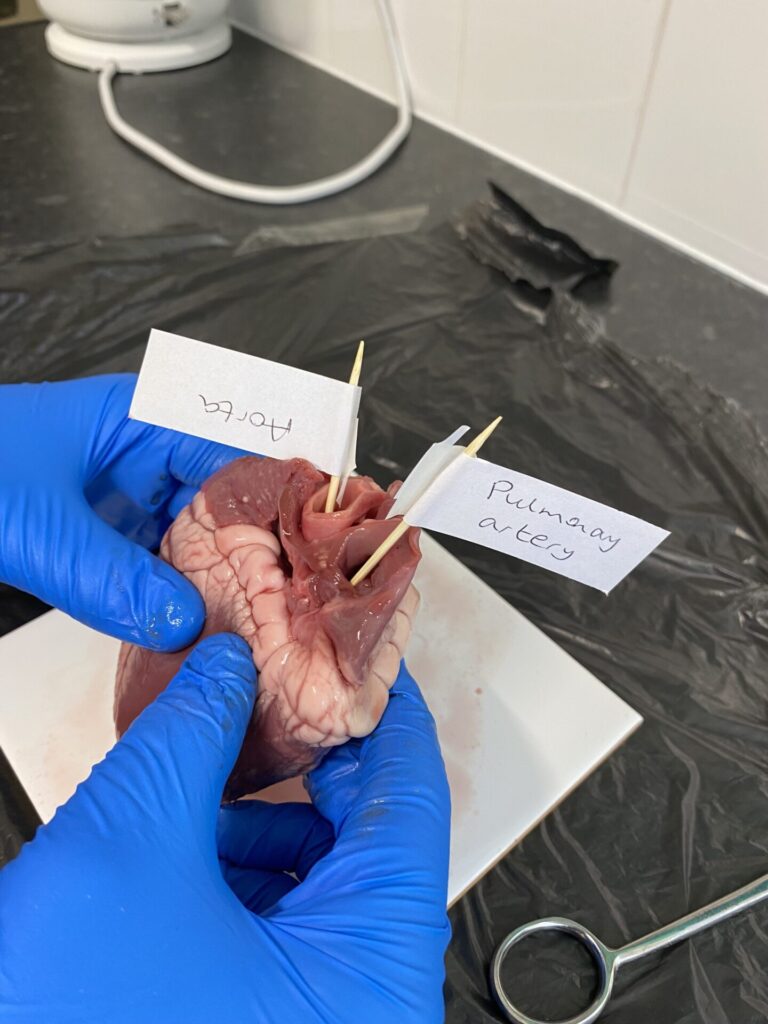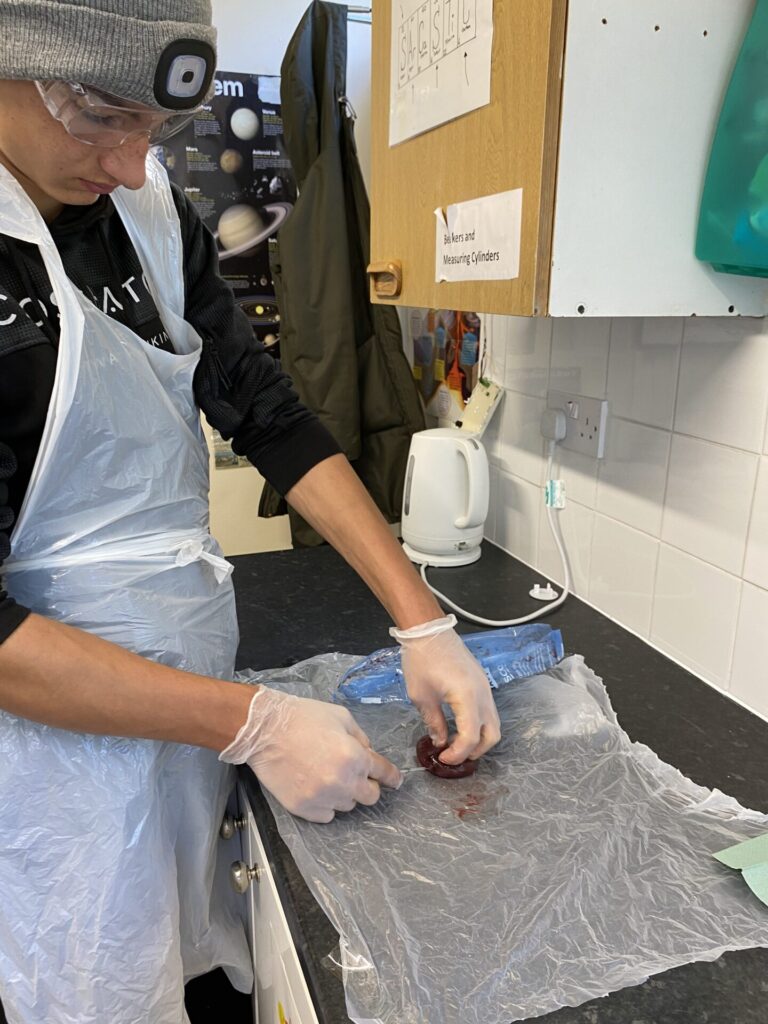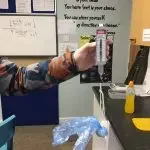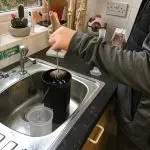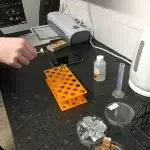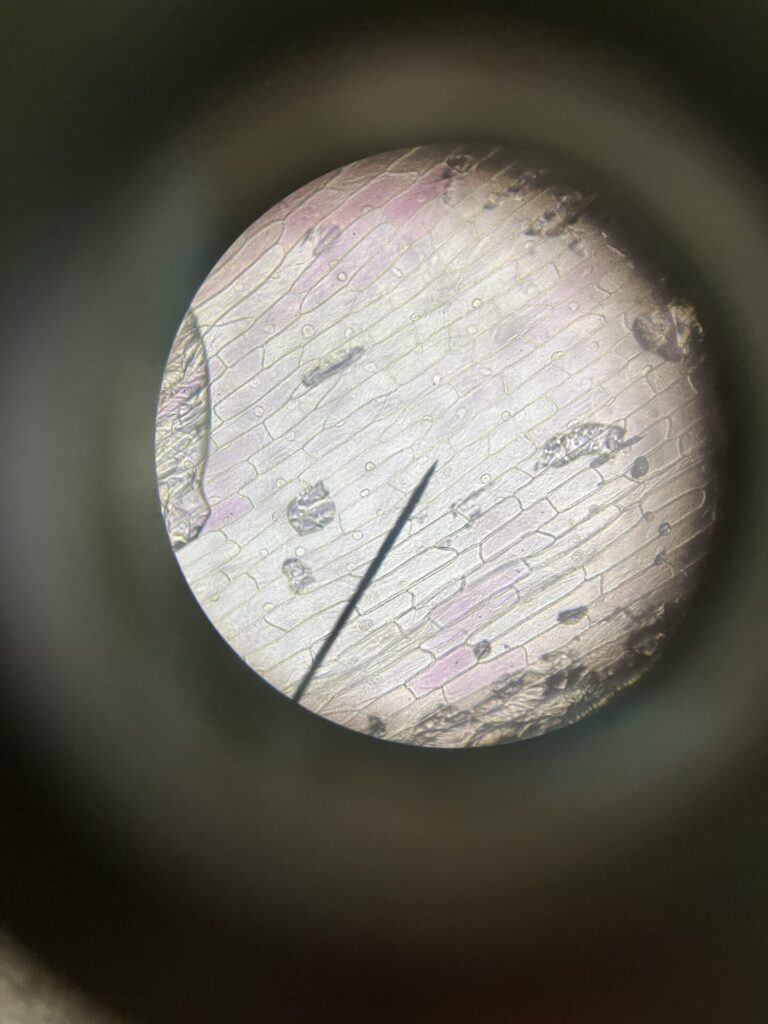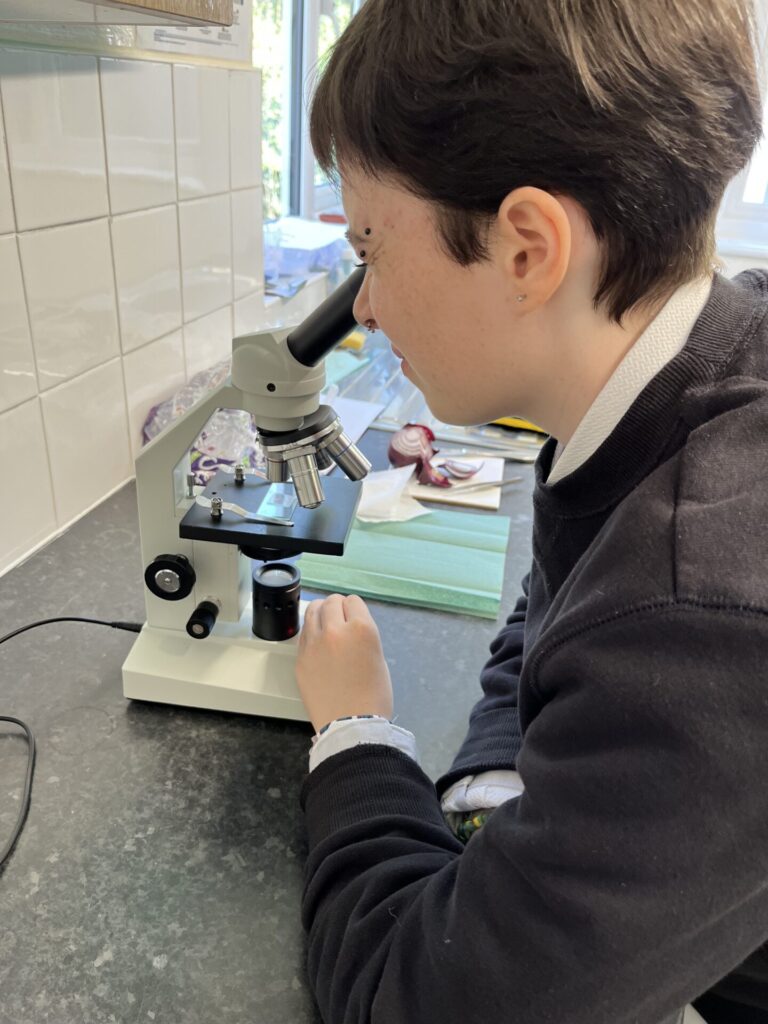“Science and everyday life cannot and should not be separated” – Rosalind Franklin
Science is taught mostly through hands-on lessons. The emphasis is on a personal journey of exploration through relatable topics. The curriculum follows the National curriculum. There is an even spread of topics from Physics, Chemistry and Biology, and a focus on the skills and knowledge required for success at GCSE Science.
At Key Stage 4, the Science curriculum develops the ability to think scientifically and critically; this helps pupils to make informed decisions as adults. These include the ability to follow health and safety procedures and raise awareness of workplace hazards before pupils embark on work experience or their first job. They become familiar with the key characteristics of some commonly used equipment, and the correct use of some technical and scientific terminology, and they learn to make qualitative and quantitative observations and measurements in practical situations. All this provides a foundation for progression and employment in industries in the science sector.
Depending upon the level, units taught generally consist of:
- The Study of Living Systems
- Electronics in Action
- Concepts and Techniques for Chemistry
- Using Equipment to make Scientific Observations and Measurements
- Healthy Living
- Pupils will study towards the following qualifications based on their knowledge and ability:
- Gateway Qualifications Level 1 Applied Science and Technology Award and/or Certificate.
- Gateway Qualifications Level 2 Applied Science and Technology Award and/or Certificate.
- IGCSE Biology, Chemistry or Physics
“Above all, don’t fear difficult moments. The best comes from them”. – Rita Levi-Montalcini

